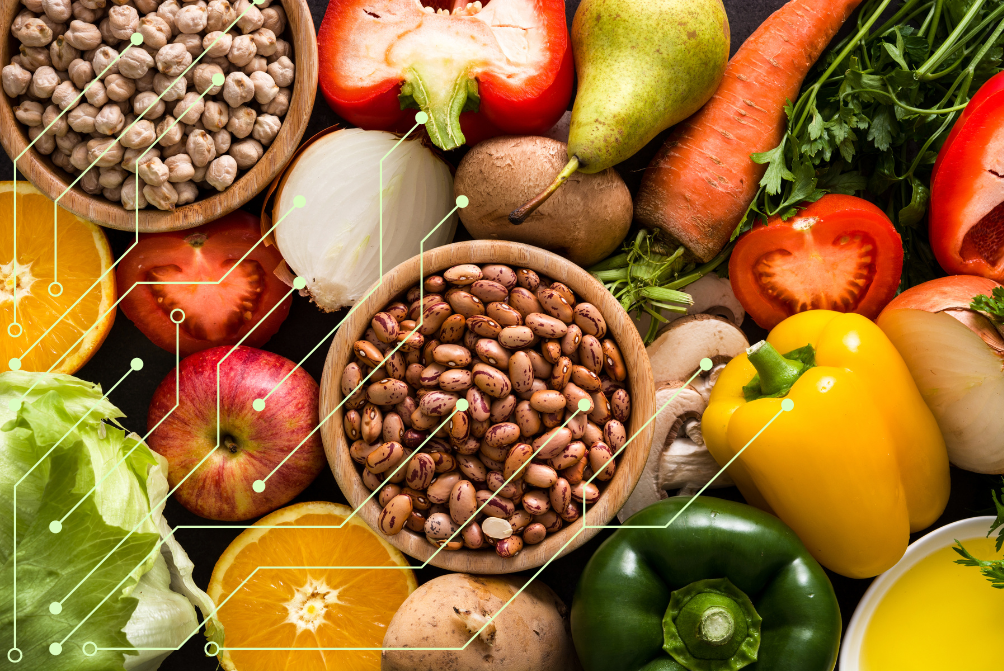The applications of artificial intelligence (AI) for alternative proteins companies – including in Australia and New Zealand – is growing at a fast rate, according to a recent op-ed from think tank Food Frontier.
Speaking to Future Alternative, Food Frontier CEO Dr Simon Eassom discussed applications such as ingredient scanning, selection and formulation, flavour enhancement, and bioprocess optimisation.

Dr Eassom explained that AI can be used in ingredient selection by analysing the structure of animal-based products and quickly and efficiently scanning thousands of plant ingredients to discover new combinations that can better match animal counterparts in taste, texture, function.
Eassom cited pet nutrition company BioCraft’s use of AI for synthesising data from publicly available scientific databases into a picture of a cell’s biochemical machinery. This allows the start-up to identify potential nutrient inputs that can elicit or enhance cell growth, nutrient biosynthesis, or other biological processes vital to cultivated meat production.
Data from Rabobank shows that AI is expected to reach a market size of around AU$53 billion in the global food and beverage industry by 2028.
Food Frontier notes how the core benefits of AI—speed to value, lower R&D costs, rapid search of unstructured data, and hyper-fast analysis—will become key capabilities in the food industry.
AI can be particularly useful in resolving the issues of price, taste, and nutrition for alternative proteins, which the think tank’s research shows to be the top concerns in the sector.

Expediting price parity
Australian consumers are some of the most price-sensitive grocery shoppers in the world, which can make adoption of plant-based foods in the country a challenge – Food Frontier research showed that on average, plant-based meat products were 49% more expensive than their conventional meat counterparts.
However, the think tank notes how companies like Climax Foods are using AI to make price parity for alternative proteins-based foods a reality. The company claims to use AI to dramatically speed up the discovery of optimal ingredient and process combinations for its plant-based casein, the production of which at scale is set to make the price equivalent to animal-based casein.
“Optimising and accelerating research and development processes, along with enhanced capacity to scan extensive datasets, contributes to achieving price parity while minimising the necessity for trial and error and anticipating challenges before they happen,” Eassom told Future Alternative.

Effectively replicating taste and texture
According to Food Frontier, the inferior taste of plant-based meat alternatives is a barrier for 45% of flexitarians and 58% of meat-reducers. However, companies are also using AI to tackle this issue.
Chilean plant-based company NotCo has been using its AI platform Giuseppe to create plant-based products since 2021. The start-up’s algorithm analyses an animal-based food at a molecular level and then seeks to closely replicate it in flavour, texture, scent and functionality by searching through a library of more than 300,000 plant ingredients.

Refining recipes to be more nutritious and sustainable

Beyond the importance of overcoming price parity and taste barriers, health and sustainably have continuously shown to be among the top factors increasing interest in plant-based diets.
AI can also be applied to address these concerns – plant-based dog food company PawCo is using the technology to discern pet nutrition trends and analyse data, which helps to refine its recipes for nutritional value.
AI is influencing alternative proteins in ANZ
AI is already influencing the broader novel food industry in Australia and New Zealand.
For example, start-up BiomeMega has combined the powers of precision fermentation and AI to develop omega-3 oils from soil and water bacteria extracts.
In addition, Australia’s national science agency CSIRO – whose research is heavily applied in the domestic novel foods sector – possesses considerable AI knowhow, leading it to establish Australia’s National AI Centre.
Meanwhile, deeptech venture capital firm Main Sequence – which has several of Australia’s top alternative proteins companies in its portfolio – has put a significant amount of money behind numerous AI start-ups.
What’s more, flavour house Kerry is using its Trendspotter algorithm to scan millions of social media posts to predict upcoming food and beverage trends and gain critical consumer insights.
“The core benefits of AI—speed to value, lower R&D costs, rapid search of unstructured data, and hyper-fast analysis—will become key capabilities in food industry,” Food Frontier states in its op-ed. “A year from now, the question won’t be ‘who’s using AI?’ it will be ‘who isn’t?’”
To stay up-to-date on the latest industry headlines, sign up to Future Alternative’s enewsletter.
Posted on:


